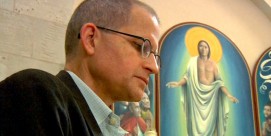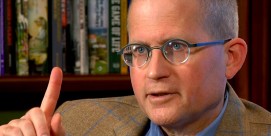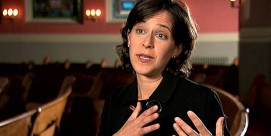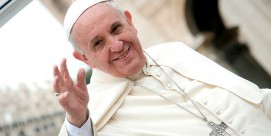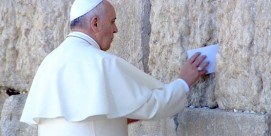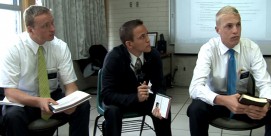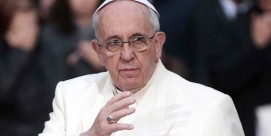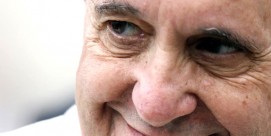“I have a hard time conceiving of a God completely removed from suffering,” says Christian Wiman, a lecturer in religion and literature at the Yale Institute of Sacred Music. “Once I understand the notion of Christ participating in suffering, then it makes more sense to me.” More
“Poetry had always been the place where I’d experienced God and it’s still the place where I feel lifted out of myself and given something I could not understand in any other way.” More
Watch more of our interview about the meaning of Shavuot with the director of community engagement at Sixth & I Historic Synagogue in Washington, DC. More
Pope Francis visited sacred sites recognized by Muslims, Christians, and Jews, including the Western Wall. He met with Ecumenical Patriarch Bartholomew and a range of other religious leaders, made unexpected stops at a terror memorial and at the separation wall that surrounds the West Bank city of Bethlehem, and he inserted himself into the peace process with a surprise invitation to a prayer summit at the Vatican. More
Programs to vaccinate children here have been hampered by a suspicions about the purpose of the vaccinations, violence from extremists, and critics who say Pakistan has more pressing problems to deal with. More
The number of people in the Church of Jesus Christ of Latter-day Saints is going up steadily as a result of the lower age limits for both men and women who want to serve as missionaries. More
The pope travels to the Holy Land; a new state law to restore religious freedom also creates concern about religious discrimination . More
The pope’s pilgrimage is intended on one level to commemorate the 1964 meeting between Pope Paul VI and Patriarch Athenagoras that ended a thousand years of estrangement between Eastern and Western Christianity. But there are other agendas as well: interfaith dialogue, the Middle East peace process, the diminishing Christian presence in the Holy Land, encounters with Jewish and Palestinian religious and political leaders. More
“It’s not that religious leaders are in a position to take political initiatives. But they represent the identities of the people, and to ignore the possibilities of interreligious support is rather short-sighted.” More
Religion & Ethics NewsWeekly
X


